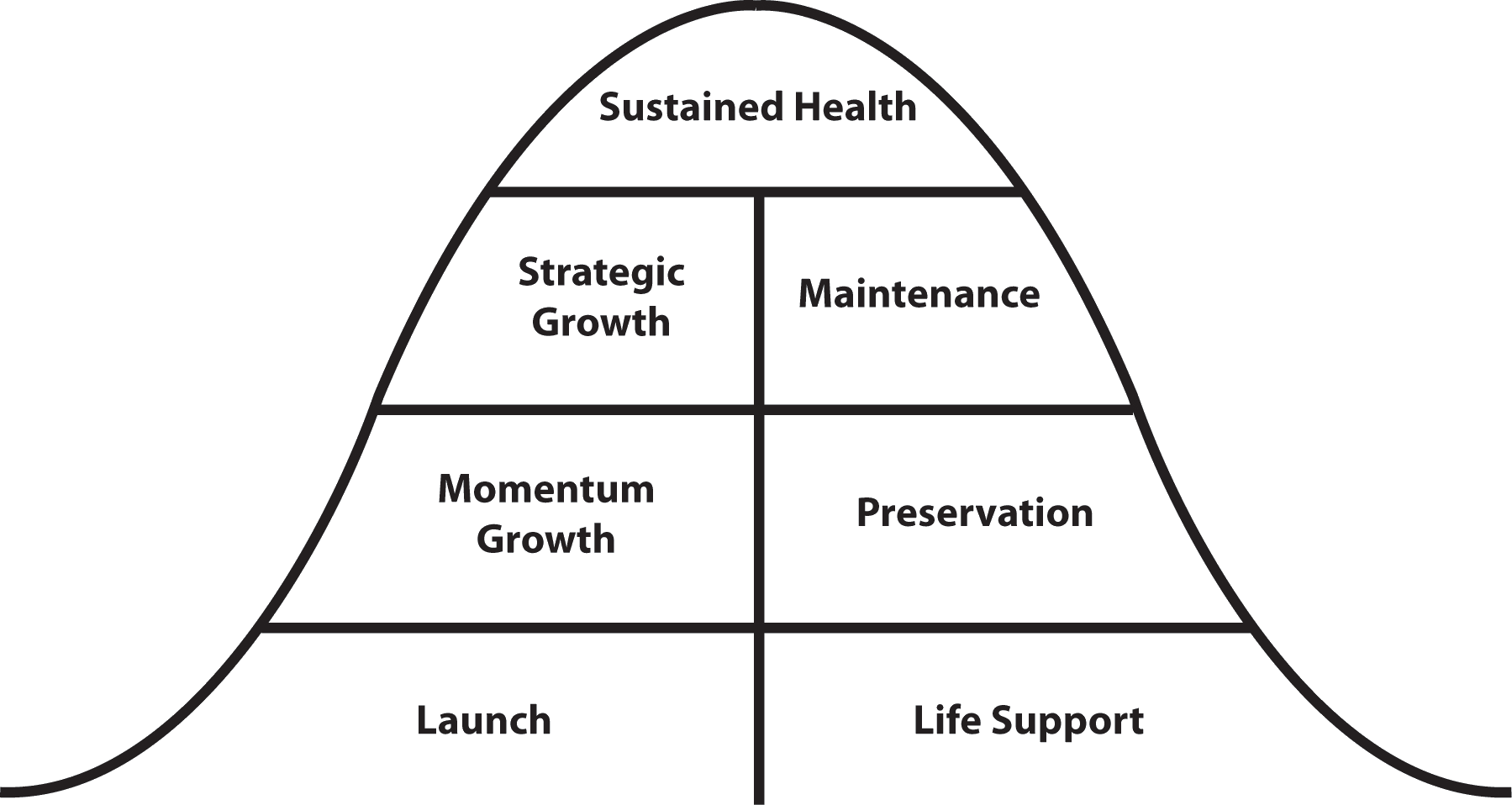I was recently on a phone call with a pastor of a small church in Florida discussing some possible next steps for his church. The church had gone through a Strategic Planning Process in the previous year. As a result of the process, the leadership team agreed upon implementing a fresh mission and vision and engaging in the development of a clear discipleship process.
To me, the most exciting new focus of this church was their willingness to shift from being insider-focused as a ministry to intentionally trying to connect with outsiders. The church is surrounded by thousands of young families in neighboring communities. How exciting!
However, it didn’t take much time in our conversation for me to discover the discouragement in the pastor’s voice. Evidently, a large portion of the church did not share in my excitement of their visionary change to connect with new people. In fact, many members of the church directly opposed any change at all. For them, they liked things just the way they were…
The pressure on the pastor and leadership team has been building over the past year. Disgruntled members have stopped attending. Some members have also been withholding financial support because they don’t like the new direction of the church. Needless to say, this has had a detrimental effect on the monthly budget. It appears these people are simply waiting in the wings hoping the pressure will become so unbearable that the pastor will leave and they can swoop in and once again and have church the way they want it.
Sadly, this situation is an all too familiar story in the life cycle of many of America’s churches. Tony Morgan, founder of the Unstuck Group, has taught us that most American churches have a life cycle that looks like this:
Once a church follows down the downward slope and finally hits the Life Support Cycle (often because they aren’t willing to make the necessary changes), they only have two options: They can either relaunch or close. It’s really that simple. And that’s why healthy change is so important.
Standing Firm When You Are Under Fire
I want to offer some insight from my experience to help pastors and leadership teams who find themselves in this same dilemma. Although the pressure is building, the life of your church depends on your ability to fulfill the Great Commission by going into all of the world to preach the Gospel. Staying true to this mission and vision is worth the resistance!
You are undoubtedly familiar with the story of the three Hebrew leaders who faced certain death in King Nebuchadnezzar’s fiery furnace for refusing to bow to his golden image. (You can read the story here in Daniel 3.) The issue they were facing was to compromise what they knew to be true in the midst of immense pressure.
You may not be facing a literal fiery furnace. However, the pressure to cave in can often times feel like it. The takeaway from their story isn’t the ability to stand up under pressure in their own strength. They put their trust in the Lord’s ability. We must also learn to draw from Jesus’ strength in times of testing.
Popular television pastor Robert Schuller is recognized for saying, “Tough times never last, but tough people do.” I’m sure the pressure you are currently under feels like it will last forever. But it won’t! Things are going to change. But in the meantime, I want to give you three proven principles to embrace if you find yourself in a pressure-filled situation:
1) Make sure you are surrounded by leaders who have your back.
The tendency for any leader in a pressure-filled situation is to withdraw and isolate yourself. I get it. It’s hard to know who you can trust. This is why it is so important to surround yourself with like-minded leaders who understand the big picture. You will most likely be accused of creating a “yes” board by your detractors. Don’t be confused by their accusations. You are much easier to discourage if you can be isolated, either by your own decision or by theirs.
We have a quote that we use in our one-day events that says, “If you want to go fast, go alone. If you want to go far, go together.” Pastor, share the burden of pressure with your trusted leaders. It is unlikely that you will be successful at bringing change if you don’t.
RELATED ARTICLES:
– How to Create an Atmosphere for Organizational Change
– The Progressive Consequences of Refusing to Change
– Finding Unity Through Clear Vision: An Interview with Jason Allison
2) Anticipate that you will constantly be challenged to test your commitment to the mission/vision.
Many years ago, our church had a guest speaker named Kim Klaudt who came to teach every year. In one of his messages, he gave us an illustration about stallion horses that I will never forget.
Stallions are brilliant animals. They are so majestic and intimidating. Those of us who have no knowledge of horse training will assume that a stallion is like most horses. The assumption is that a horse will continue to obey the instructions of its trainer after it has been broken through training. However, this is not true of a stallion. Kim taught us that a stallion has to be reminded every day of who is in charge. Although you worked together wonderfully yesterday, it needs to be reminded again today that you are the leader.
I think this illustration relates powerfully to pastors who understand the need for change within their church. It’s one thing to cast vision. You can build a great team around new ideas and strategies. People will even verbally support you at the beginning. However, once you begin to implement the necessary changes is when your courage as a leader will be challenged. And just like that stallion, you will have to remind everyone on a continual basis of the reasons for change and the focus of the mission and vision. This can be an exhausting proposition! But we must stay the course. There are too many souls in the balance for us to cave in to the pressure!
3) Continually remind the leadership team of Scripture that supports your mission/vision.
The increasing pressure that accompanies positive change can often bring confusion. This is why it is good to be reminded that the Scriptures says, “For God is not the author of confusion but of peace, as in all the churches of the saints” (1 Corinthians 14:33).
A great example of dealing with pressure-filled situations can be found by looking at Joshua. Without going into all of the problems Joshua faced, you can learn from what God instructed him to do in Joshua 1:8:
“This Book of the Law shall not depart from your mouth, but you shall meditate in it day and night, that you may observe to do according to all that is written in it. For then you will make your way prosperous, and then you will have good success.”
The basic definition of the word meditate means to speak to yourself in a low tone of voice. Wow! God’s advice in Joshua’s difficult situation was to remind himself of what God had already promised him in His Word! The enemy will often confront you in the same way he confronted Eve in Genesis 3:1 by asking you, “has God indeed said…?”
I can assure you that you will never see the mission and vision through if you begin to doubt in your heart what you believe He told you to do. He never contradicts Himself. Neither does He lead us to do things contrary to what He has told us in His Word. Let the Word be your guide. And let the Word be the guide for your team.
I am going to make the assumption that your updated mission and vision is founded on a desire to help reach those who are far from God. Therefore, you have a biblical mandate to impact your local community.
And the truth is this: a church with more than one vision for the future of the ministry will always experience division. Jesus hasn’t called a single church to have more than one vision for what’s ahead. And as the leader, your job is to help create and cast that unified vision for the future of the ministry. Another way of saying this is that you can’t put new wine in old wineskins!
The Bible tells us in 1 Samuel 30:6 that David had to strengthen, or encourage, himself in the Lord in the midst of distressing times. So let’s learn from his example and encourage ourselves by building a trusted team, reminding ourselves of what Scripture says, and resolving to be committed to the process even in the daily grind of resistance. You are an overcomer! It’s in your nature as a Jesus follower. Jesus is able to accomplish the mission and vision that He has called you to as you stay connected to Him.
Need help leading your church through change? Learn how VisionBox can help you unify your team and gain clarity for the future:









